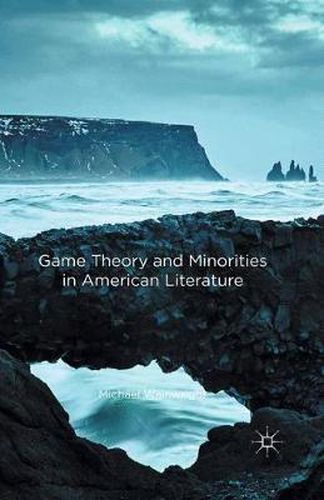Readings Newsletter
Become a Readings Member to make your shopping experience even easier.
Sign in or sign up for free!
You’re not far away from qualifying for FREE standard shipping within Australia
You’ve qualified for FREE standard shipping within Australia
The cart is loading…






This title is printed to order. This book may have been self-published. If so, we cannot guarantee the quality of the content. In the main most books will have gone through the editing process however some may not. We therefore suggest that you be aware of this before ordering this book. If in doubt check either the author or publisher’s details as we are unable to accept any returns unless they are faulty. Please contact us if you have any questions.
This interdisciplinary monograph applies the theory of games of strategy (or game theory) to an important subset of American literature: minoritarian texts. Fittingly, John von Neumann’s game theory, as a mathematical subdiscipline practically abandoned by its founder after the publication of ‘Zur Theorie der Gesellschaftsspiele’ (1928), but purposefully reengaged with on his permanent relocation to America in 1938, carries the minoritarian credentials of a Hungarian-born national of Jewish descent. The state of international politics in the late 1930s certainly contributed to von Neumann’s renewed interest in his theory, but a socioeconomic environment built on the legacy of slavery focused a reengagement with coordination problems that would last until his death. In these strategic situations, people must make choices in the knowledge that other people face the same options and that the outcome for each person will result from everybody’s decisions. The four most frequently encountered coordination problems are the Stag Hunt, the Prisoner’s Dilemma, Chicken, and Deadlock Minoritarians find majoritarian attempts to control these social dilemmas particularly challenging. Hence, a game-theoretically inflected hermeneutic that identifies the logical, rational, and strategic state of human interrelations not only helps to categorize, but also to analyze minoritarian texts. The authors under detailed consideration are Benjamin Franklin, Frederick Douglass, Harriet A. Jacobs, Zora Neale Hurston, William Faulkner, Toni Morrison, and Mohsin Hamid.
$9.00 standard shipping within Australia
FREE standard shipping within Australia for orders over $100.00
Express & International shipping calculated at checkout
This title is printed to order. This book may have been self-published. If so, we cannot guarantee the quality of the content. In the main most books will have gone through the editing process however some may not. We therefore suggest that you be aware of this before ordering this book. If in doubt check either the author or publisher’s details as we are unable to accept any returns unless they are faulty. Please contact us if you have any questions.
This interdisciplinary monograph applies the theory of games of strategy (or game theory) to an important subset of American literature: minoritarian texts. Fittingly, John von Neumann’s game theory, as a mathematical subdiscipline practically abandoned by its founder after the publication of ‘Zur Theorie der Gesellschaftsspiele’ (1928), but purposefully reengaged with on his permanent relocation to America in 1938, carries the minoritarian credentials of a Hungarian-born national of Jewish descent. The state of international politics in the late 1930s certainly contributed to von Neumann’s renewed interest in his theory, but a socioeconomic environment built on the legacy of slavery focused a reengagement with coordination problems that would last until his death. In these strategic situations, people must make choices in the knowledge that other people face the same options and that the outcome for each person will result from everybody’s decisions. The four most frequently encountered coordination problems are the Stag Hunt, the Prisoner’s Dilemma, Chicken, and Deadlock Minoritarians find majoritarian attempts to control these social dilemmas particularly challenging. Hence, a game-theoretically inflected hermeneutic that identifies the logical, rational, and strategic state of human interrelations not only helps to categorize, but also to analyze minoritarian texts. The authors under detailed consideration are Benjamin Franklin, Frederick Douglass, Harriet A. Jacobs, Zora Neale Hurston, William Faulkner, Toni Morrison, and Mohsin Hamid.